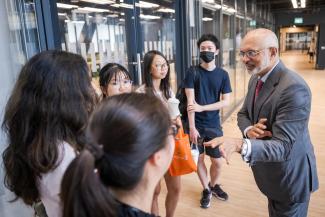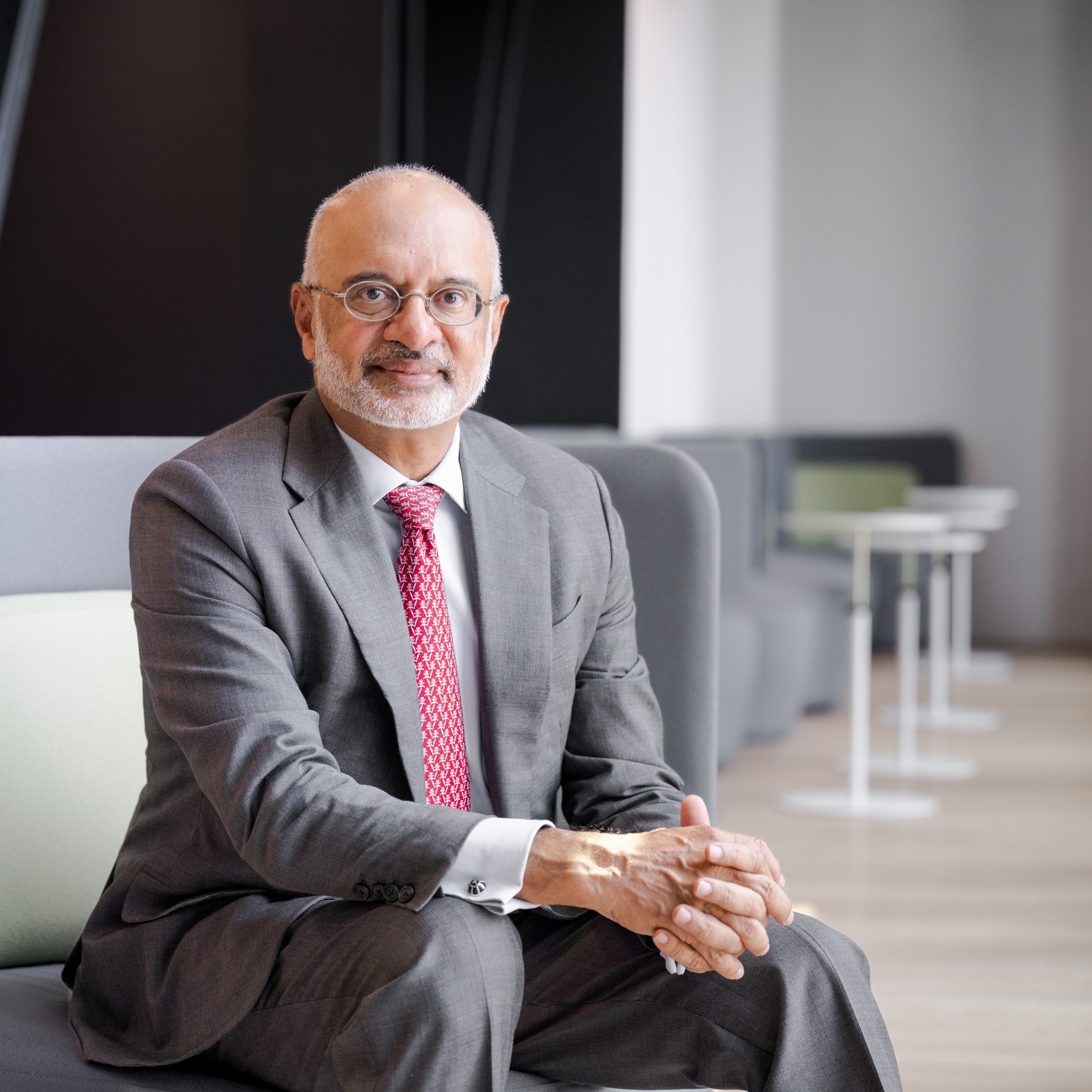
What do DBS Bank and Singapore Management University (SMU) have in common? Mr Piyush Gupta, who became SMU Chairman in January, said that both have the building blocks to become "quintessentially Asian".
“I found in SMU the same thing that I find in Singapore and I found (in) DBS. We’re big enough to have some heft, some resources and some clout, but we're small enough to not be caught up with orthodoxies, so you can be nimble and adaptable. You can punch above your weight,” said Mr Gupta, who is also Group CEO of DBS.
He was speaking to the press on August 10, ahead of the opening of the new academic year, outlining his vision for the University.
Role of universities
He said that the increasingly challenging world sparks the need for universities to create solutions.
“In my opinion, some of the biggest drivers of this change of reimagining what the future world needs to be will be civil society. And within civil society, universities are going to be a really important platform… higher education in particular has been really important both for creation of knowledge and thinking, and dissemination of knowledge and thinking.”
Interdisciplinary learning and applied research
He shared that SMU will continue “doubling down” on its move towards interdisciplinary learning and applied research – getting students and academics involved in creating solutions to challenges in Singapore and across Asia.
As AI advances and outperforms people, people can create impact with their ability to solve problems, create solutions and think laterally. The world will need a cadre of people who can “connect the dots”, and “well-rounded people who can think broadly and laterally”.
SMU’s new College of Integrative Studies, which welcomes its first intake of about 100 students this August, saw overwhelming response. “So you can begin to see the people who are already thinking that way. And my bet is that this is where the future of education is going to be,” he said of the new Bachelor of Integrative Studies programme.
SMU will also aim to encourage more applied research, getting academic staff to come up with more implementable solutions to solve global problems, beyond creating citations.
To this end, SMU will establish a new research institute in the next six months dedicated to developing interdisciplinary research, with a focus on tackling social, management and technological challenges in urban solutions. It has also appointed a new Vice Provost for Strategic Research Partnerships to create more opportunities in shaping SMU’s research agenda and to draw up research grant proposals aligned with national priorities.
Furthermore, the University is relooking the rubric of what defines success and wants to create "alternate measures for recognition and success" for its academics, beyond academic citations and publications in renowned journals.
Increasing Asian presence
Mr Gupta also noted Asia’s growing presence in the world and that the “centre of gravity is shifting to Asia”. Beyond the opportunity to leave an impact by exploring solutions to challenges across the region, Mr Gupta added that it is an opportunity for SMU to carve its own niche and stand out.
Hence, following the opening of its first overseas centre in Jakarta, Indonesia, in December 2022, SMU will open two more in Bangkok, Thailand, and Ho Chi Minh City, Vietnam, in October and November this year respectively. These centres will serve as “embassies” for SMU to work with companies, universities and the wider society in those countries, to further grown "Asian-centric research and Asian-centric solutions". They will also enable its students to gain exposure and to plug into the challenges and potential of the region.
Media coverage:
20230812_Kiss92FM News_SMU to expand its reach in Southeast Asia with overseas centres
